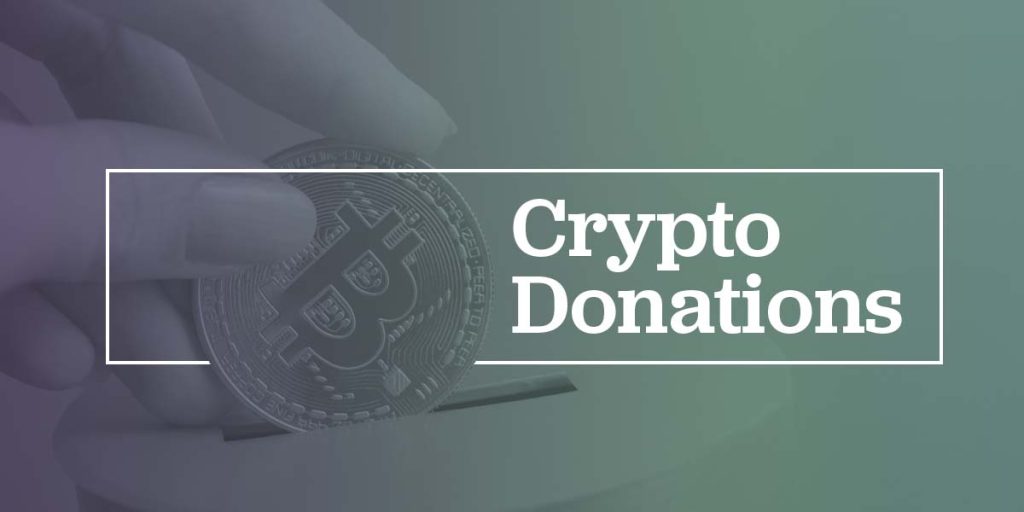AUTHOR : BILLIE EILLISH
DATE 03/09/2024
Introduction
In recent years, cryptocurrencies[1] have revolutionized various sectors, including philanthropic. Indian non-profits are increasingly exploring crypto donations as a way to diversify funding sources, engage with a global audience, and leverage the benefits of digital assets[2]. This guide delves into the concept of crypto donations, their advantages, challenges, and practical steps for Indian non-profits[3] looking to adopt this innovative fundraising method.
What Are Crypto Donations?

Crypto donations refer to the process of receiving charitable contributions in the form of cryptocurrencies such as Bitcoin (BTC)[4], Ethereum (ETH), or other digital assets. These donations can be made by individuals or organizations who prefer to use cryptocurrencies instead of traditional fiat currencies[5].
How Crypto Donations Work
- Donation Initiation: A donor initiates a transaction using their cryptocurrency wallet, specifying the amount they wish to donate.
- Transaction Processing: The donation is processed through a cryptocurrency payment gateway or direct wallet transfer.
- Conversion (Optional): The received cryptocurrency can be converted into fiat currency or held in digital form, depending on the non-profit’s preference.
- Acknowledgment: The non-profit acknowledges the donation and provides a receipt or confirmation to the donor.
Benefits of Crypto Donations for Indian Non-Profits
1. Expanding Funding Sources
Cryptocurrency donations open up new avenues for fundraising, enabling nonprofits to tap into a global network of donors who may prefer to contribute using digital assets. This can be particularly advantageous in a country like India, where traditional donation channels may be limited.
2. Lower Transaction Fees
Traditional payment methods[1] often involve substantial transaction fees, which can eat into the funds received by non-profits. Crypto transactions typically have lower fees, allowing more of the donation amount to go directly to the cause.
3. Enhanced Security
Blockchain technology, which underpins cryptocurrencies, offers robust security features. Transactions are encrypted and recorded on a decentralized ledger, reducing the risk of fraud and ensuring transparency.
4. Faster Transactions
Cryptocurrency transactions are processed quickly compared to traditional bank transfers, which can take several days. This means that non-profits can access funds more rapidly and efficiently.
5. Increased Transparency
Blockchain technology[2] provides a transparent record of all transactions, which can enhance trust and accountability. Donors can track their contributions and verify that their funds are being used as intended.
Challenges of Crypto Donations

1. Regulatory Uncertainty
The regulatory environment for cryptocurrencies in India is still evolving. Non-profits must navigate a complex landscape of legal and tax regulations, which can be challenging and may require professional guidance.
2. Volatility
Cryptocurrencies are known for their price volatility. The value of donations can fluctuate significantly, which can pose risks for non-profits that hold substantial amounts of digital assets.
3. Technical Complexity
Setting up and managing crypto donations involves a certain level of technical expertise. Non-profits need to understand how to use digital wallets, manage private keys, and integrate with payment gateways.
4. Limited Adoption
Despite growing interest, not all potential donors are familiar with or comfortable using cryptocurrencies. This limited adoption can impact the overall effectiveness of crypto donation campaigns.
How Indian Non-Profits Can Get Started with Crypto Donations
1. Choose a Cryptocurrency Payment Gateway
Selecting a reliable cryptocurrency payment gateway is crucial for accepting donations. Look for providers that offer user-friendly interfaces, support multiple cryptocurrencies, and have a track record of security and reliability.
2. Set Up a Digital Wallet
Non-profits need a digital wallet[3] to receive and manage cryptocurrency donations. Choose a wallet that aligns with your organization’s needs and provides adequate security features.
3. Integrate with Your Website
Integrate the chosen payment gateway into your website or donation platform. This integration allows donors to contribute directly through your online channels, making the process seamless and user-friendly.
4. Educate Your Team
Ensure that your team understands the basics of cryptocurrency transactions, including how to manage digital wallets, handle private keys, and track donations. Training will help in managing the process effectively and securely.
5. Promote Crypto Donations
Raise awareness about your crypto donation options through your marketing channels. Highlight the benefits of crypto donations and provide clear instructions on how donors can contribute using digital assets.
6. Monitor and Report
Regularly monitor the performance of your crypto donation campaigns and provide updates to your donors. Transparency and communication are key to building trust and encouraging ongoing support.
Case Studies of Successful Crypto Donations in India

1. The Art of Living Foundation
The Art of Living Foundation, a prominent non-profit in India, has successfully integrated cryptocurrency donations into its fundraising strategy. By leveraging a well-known payment gateway, they have attracted international donors and received substantial contributions in Bitcoin and Ethereum[4].
2. Crypto Relief
Crypto Relief is a charity initiative that emerged during the COVID-19 pandemic, using cryptocurrency donations to support healthcare and relief efforts in India. Their success highlights the potential of crypto donations in addressing urgent needs and mobilizing resources quickly.
Conclusion
Crypto donations present a promising opportunity for Indian non-profits to diversify their funding sources, enhance transparency, and engage with a global community of supporters. While there are challenges to consider, such as regulatory uncertainty and volatility, the benefits make it a worthwhile endeavor for many organizations. By carefully selecting payment gateways[5], educating their teams, and promoting crypto donation options, non-profits can harness the power of digital assets to support their missions and drive positive change.
FAQ
1] What cryptocurrencies can Indian non-profits accept?
Indian non-profits can accept various cryptocurrencies, including Bitcoin (BTC), Ethereum (ETH), Ripple (XRP), and more. The choice depends on the payment gateway and wallet they use.
2] Are crypto donations taxable in India?
Yes, crypto donations are subject to tax regulations in India. Non-profits must comply with applicable tax laws, which may include reporting donations and converting digital assets into fiat currency for tax purposes.
3] How can non-profits convert crypto donations into fiat currency?
Non-profits can use cryptocurrency exchanges or payment gateways to convert crypto donations into fiat currency. This process typically involves transferring the digital assets to an exchange, where they can be sold for INR.
4] What security measures should non-profits take for crypto donations?
Non-profits should use secure digital wallets, enable two-factor authentication, and regularly back up their wallet information. Additionally, they should work with reputable payment gateways that offer robust security features.
5] How can non-profits promote crypto donations effectively?
Non-profits can promote crypto donations by highlighting the benefits in their marketing materials, educating potential donors about how to contribute, and sharing success stories to build trust and engagement.

